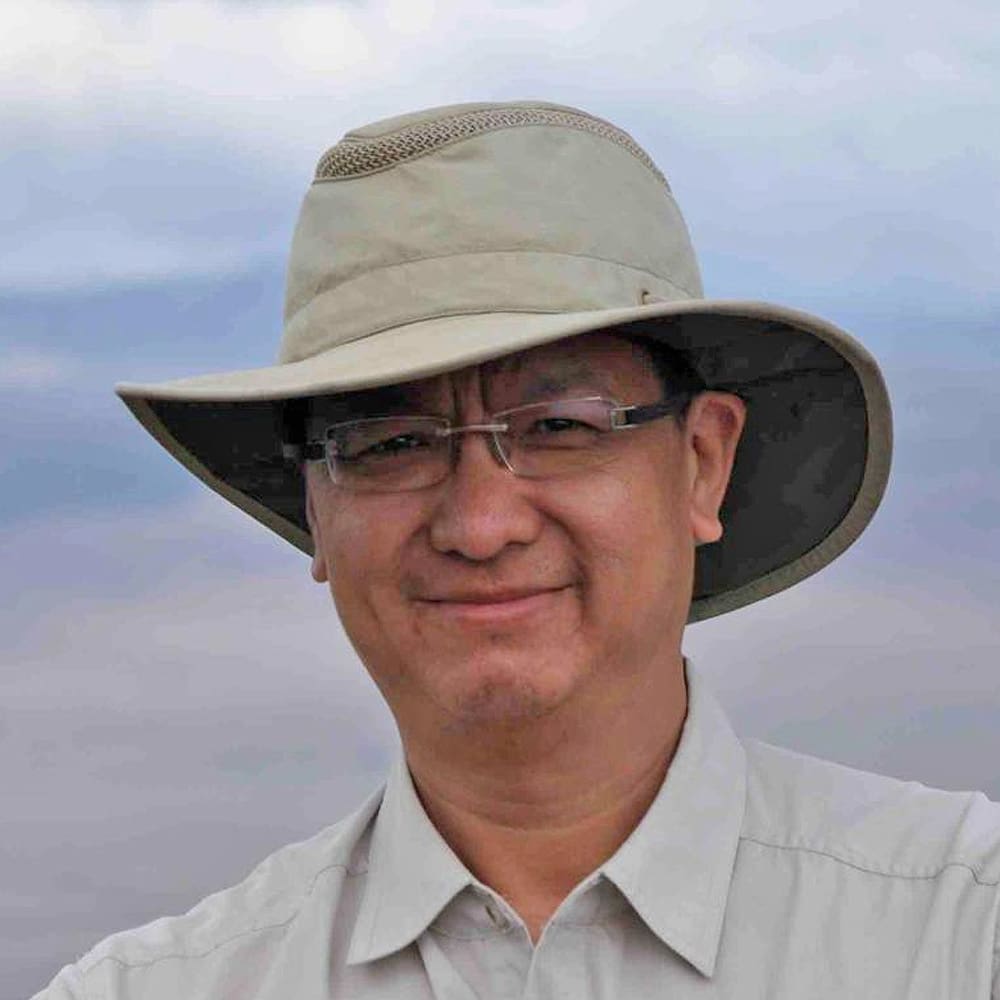I
If God is one and the Christian faith is the true understanding of God’s revelation, why are there so many other religions? They do not refer to the same idea of God. They cannot all be correct—they are mutually exclusive. So why does God permit other religions to exist? If God is not without a witness in the entire world, then are non-Christian traditions not also God’s witnesses? If they are, then Jesus cannot be the only way. If they are not, then God cannot have witnesses among them. This is a demanding issue facing theologians, and no one has offered a fully satisfactory answer. That is why I am grappling with it. My tentative attempt reflects a passion for “the lost,” and represents a small step toward a theology of religions.
Let us begin by defining what we mean by religion. The Christian notion of religion refers to the binding belief of communities in their response to divine revelation. Non-Christian religions need not include a god, a community, or revelation. Their diversity makes it impossible to make simplistic statements about what they are, so I will limit myself to considering how Christians ought to relate to them. I believe we should engage other religions with respect, humility, and awe. Why awe? Because the persistence of religions in every known human culture testifies to humanity’s restlessness—a restlessness that prompts humanity to seek security and significance beyond the biological needs. It reminds us that among creation, humanity alone is the praying animal. We anticipate future joy with our imaginations and suffer the anguish of the past with recollective memory. We invest huge amounts of resources in celebrating births and mourning deaths. We ritualize the passage of time with symbolic markers of our existence, and we create art, music, and poetry to express the inexpressible as we monumentalize our presence. Is it any surprise then that the study of religion is the oldest persistent preoccupation of human existence or how it bears on every discipline of inquiry?
I grew up in Malaysia, a multiracial, multicultural and multi-religious nation once colonized by the Hindu and Buddhist kingdoms of the Indonesian archipelago and of India, the Chinese mariners of southern China, the Arabs, followed by the Portuguese, the Dutch, the British and then the Japanese. Each left its religious influence and, today, we have no fewer than twenty different religious faiths actively practiced. How did I end up a Christian? Why do I remain one when so many options are present? Bertrand Russell argued that where you grew up and how you were exposed strongly influences your religious inclinations. Living in New York City, today, I am reminded of the increasing options for religious beliefs around me and the appearance of new religious identities brought by immigration from faraway countries. This led me to ask: What is the Christian view of other religions?
Elements of Truth in Other Religions
Christians of my background typically assert that non-Christian religions are demonic. We describe them as works of the Devil, or we consider them man-made, false attributions of divinity. But why would demonic religions also teach many of the moral values shared by Christianity, and why would man-made religious continue to thrive alongside Christianity? Could it be that many of these religions that share kernels of truth claims with the biblical teachings survive as corruptions of the original, syncretized with animism, legendary myths, and shamanism? Or are other religious local variants of the Western, idealized faith we call Christianity. When we ignorantly assume that non-Christians have no knowledge of God, or that non-Christian religions, usually coupled to nationalistic cultures, are demonic, we project a climate of hostility and condemnation, killing any opportunity for building trust and dialogue. Yet dialogues are not fusions of thought. They demand clarity and precision of thought regarding one’s convictional beliefs while respectfully learning about others. This discipline is a labor of love, one that requires a suspension of disbelief while engaging the opinions of another.
The challenge before the Christian claim in a world of religious pluralism is Jesus himself, specifically, the finality and particularity of Christ. Why should the non-Christian accept the view that Jesus alone is the source of salvation? The quick answer is in fact, a retort: no other religion really avoids this question of particularity. Even the most amorphous notions of Hinduism and animism claim particularity and finality. Yet, asserting the finality of Christ does not relieve us from explaining the status of other religions. Do they also save? Do they offer truths?
The finality and particularity of Christ rest on two biblical claims: Jesus is the full and authoritative revelation of who God is and what God desires. He is the particular and unique individual whom God designates as our savior. No other revelation will surpass him (John 1:9) and God has not left himself without a witness among non-Christian traditions (Acts 14:17). The ‘scandal of particularity’ is the conviction that God has revealed himself in particular places and times, especially through the Jews and Jesus, and not to every human being in equal measure.
The Christian church in line with the witness of the scriptures holds that God has revealed himself in an authoritative manner. This first truth claim is the starting point for a theology of religion. The second truth is that God has made all humans in His image, whether or not they acknowledge this. God’s definitive but not exhaustive revelation is written in the Bible. God has at various times revealed himself directly to specific people outside the covenant community of Israel (and hence for us today, outside the Church). These include Abimelech of Gerar (Gen. 20:3-7), the Egyptian pharaoh (Gen. 41), Balaam (Num. 22), Nebuchadnezzar (Daniel 2, 4), Jethro, Job, the Queen of Sheba, and Cornelius (Acts 10:3-5). God’s creation has been corrupted by sin. But the atoning work of Jesus on the cross allows humanity to be reconciled to God.
Jesus is the unique incarnation of God and is the only Savior for all peoples. But it is not necessary for everybody to possess a conscious knowledge of Christ in order to benefit from redemption through him, since this would physically, geographically, and historically limit the work of Christ and put the bottleneck of evangelism at the competence of missionaries and evangelists. Indeed, neither Adam or Noah, nor Abram, nor any of the Old Testament prophets knows Christ as the Logos incarnate. The work of salvation was accomplished by the second person of the eternal Triune God who penetrated space-time as Jesus. J. I. Packer, Millard Erickson, John Stott, and Christopher Wright argue that in principle God might, indeed, save some who have never explicitly heard the gospel but respond to what they know of God through general revelation and turn to him for forgiveness. We simply do not know. Our wisest approach is not to rule out this possibility. Should this mean that all other religions are the equal of Christianity? No. Does this mean that we need not evangelize those of other religious beliefs? No. What it does mean is that while we urgently share the message of the gospel, we must remain agnostic about the exhaustive means by which God draws His creation to Himself. We must continue to affirm with confidence the truth of the scriptures while not assuming to comprehend all the mysteries of God.
Imagebearers First
What did Muhammad receive as revelation, and what knowledge awakened the Buddha? If we take seriously the claim that all humans are made in the image of God—made to be morally aware of right and wrong by God’s standards, then we ought not be surprised by elements of truth in the teachings of other religions. People are, first and foremost, made in the image of God before they are Buddhists or Muslims or Hindus, observant Jews, or pagans. We are all related to God whether or not we acknowledge this relationship. Our differences are secondary to what primarily unites us: our humanity as made in the image of God. From this starting point, we should expect to find nuggets of truth and echoes of Christian belief in every religion. We may think of other religions as displaying varying degrees of understanding God. Their teachings may be partial and often distorted. One example of a universal teaching is the Golden Rule: we are not to do to others what we do not wish to be done to us. Even its positive variant, we are to do to others what we wish others to do to us, pales in comparison to the striking teaching of Christ—you shall love your neighbour as yourself!
So why did God allow so many other religions? I suspect that God’s way included the progressive revelation to different human groups through general revelation. This seems an unsatisfactory answer as it raises up the question of favouritism. The Bible is unashamedly open about how God chooses one over the other: Jacob over Esau, for example. However we try to parse the biblical text to soften this blow, the fact remains that each day, millions die without direct knowledge of Jesus. I welcome at least their understanding of nuggets of truth through other religions instead of no knowledge of God at all. And we may pray that God will have mercy on them and judge them according to their level of understanding coupled with their response in worship.
A Word of Caution
A study of non-Christian religions, while part of a maturing process for our faith, holds certain temptations. One may be tempted to water down or compromise the truth claims of Christianity it order to make it more palatable to other religious claims. One may flirt with commitment to another faith out of admiration or disappointment with some aspects of Christian worship or in the mistaken impression that a suspension of one’s own commitments is necessary in order to study other religions. This was the route taken by the formerly conservative scholar John Hick, who turned from a Christian apologist to become the preeminent religious pluralist of our time. There is no such thing as a person with no commitments. However, commitment to Jesus does not rule out acceptance of the truths that other faiths may incidentally contain. Finally, danger lurks for those of us whose knowledge of Christianity is shallow. The answer is not to avoid learning about other religions but to hasten one’s understanding of the Christian faith.
Selected Bibliography
- Anderson, J. N. D. Christianity and World Religions. Downers Grove, IL: Intervarsity Press. 1984.
- Ayoub, Mahmoud. A Muslim View of Christianity. Edited by Irfan A. Omar. Maryknoll, NY: Orbis. 2007.
- Braaten, Carl E. No Other Gospel: Christianity Among the World’s Religions. Minneapolis: Fortress. 1992.
- Cox, Harvey. Many Mansions: A Christian’s Encounter with Other Faiths. Boston: Beacon Press. 2001.
- D’Costa, Gavin. Christian Uniqueness Reconsidered: Myth of Pluralistic Theology of Religions (Faith Meets Faith Series in Interreligious Dialogue). Maryknoll, NY: Orbis Books. 1990.
- Edwards, James R. Is Jesus the Only Savior? Grand Rapids: Eerdmans. 2005.
- Hick, John. A Christian Theology of Religions: The Rainbow of Faiths. Louisville, KY: Westminster/John Knox Press. 1995.
- McDermott. God’s Rivals: Why Has God Allowed Different Religions? Downer’s Grove, IL: InterVarsity Academic. 2007.
- Nash, Ronald H. Is Jesus the Only Savior? Grand Rapids: Zondervan. 1994.
- Netland, Harold. Encountering Religious Pluralism: The Challenge to Christian Faith and Mission. Downer’s Grove, IL: InterVarsity. 2001.
- Pinnock, Clark H. A Wideness of God’s Mercy: The Finality of Jesus Christ in a World of Religions. Grand Rapids: Zondervan. 1992.
- Sanders, John. Ed. Fackre, Gabriel, John Nash and John Sanders. What About Those Who Have Never Heard? Three Views on the Destiny of the Unevangelized. Downers Grove, IL: Intervarsity Press. 1995.
- Sanneh, Lamin. Translating the Message: The Missionary Impact on Culture. Maryknoll, NY: Orbis Books. 1989.
- Smith, Huston. The Soul of Christianity: Restoring the Great Tradition. New York: HarperSanFrancisco. 2006.
- Walls, Andrew. The Cross-Cultural Process in Christian History: Studies in the Transmission and Appropriation of Faith. Maryknoll, NY: Orbis Books. 2002.






